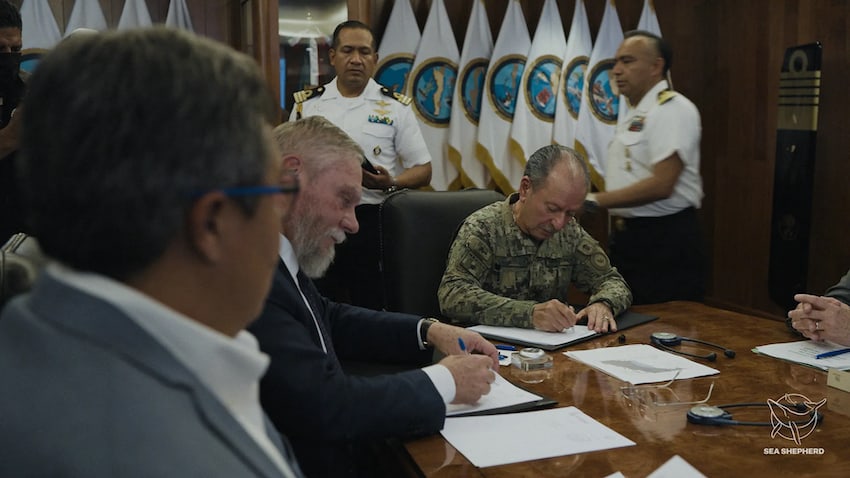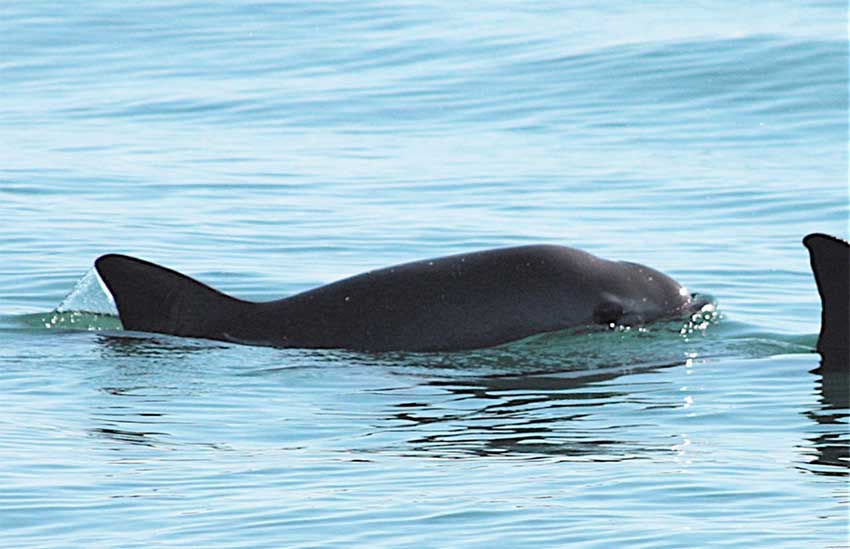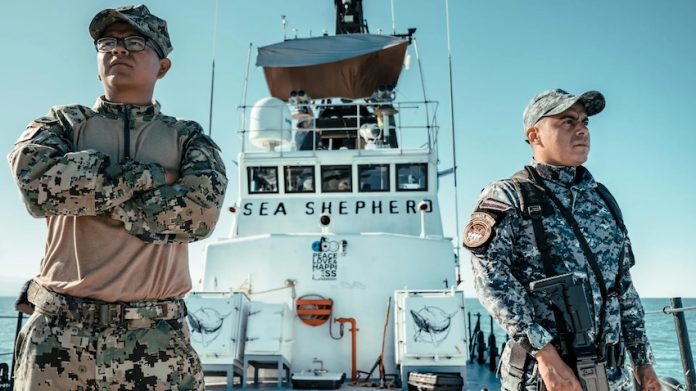The Mexican government and conservation group Sea Shepherd signed a historic endangered species conservation agreement on Tuesday, to expand the protection of the vaquita porpoise, the world’s smallest cetacean.
Tuesday’s agreement will increase the conservation area where fishing is banned – the so-called “Zero Tolerance Area” – by over 60%.

In August, the International Whaling Commission (IWC) issued an extinction alert – its first ever – for the vaquita, which can only be found in the Gulf of California.
The new agreement will expand protection to the west and northwest of the current protected zone to include the areas where the May 2023 Vaquita Survey identified between 10 and 13 specimens of the vaquita in the Upper Gulf of California.
The agreement expands protection protocols to include the totoaba fish – also an endangered species – across the entire UNESCO-recognized Vaquita Refuge.
The agreement was signed by Admiral Ojeda of the Mexican Navy and Sea Shepherd CEO Pritam Singh.

“This is a huge step forward,” Singh said at the signing. “We are deeply grateful to our partners in the Mexican Government for expanding Operation Milagro and exponentially increasing the capacity to help protect these two species. More protection means a better chance for survival for the vaquita and the totoaba.”
The partnership between Sea Shepherd and the Intergovernmental Group on Sustainability in the Upper Gulf of California (GIS) has so far seen a 90% reduction in illegal fishing activity in the Zero Tolerance Area, Sea Shepherd said.
In a separate statement, the Ministry of Environment and Natural Resources (Semarnat) said that it will review fishing schedules to better support sustainable fishing practices in the region. It also said that the area’s fishermen will also identify the embarkation and disembarkation points they consider most functional.
Representatives of fishermen from Upper Gulf communities requested Semarnat review the effectiveness of alternative fishing tools and the ecological impact of existing equipment used in the industry.
While the expanded protection is good news for the vaquita, Alejandro Olivera, senior scientist and Mexico representative at the Center for Biological Diversity, told Reuters that the Mexican government should also enforce its ban on illegal fishing more aggressively.
With reports from Sea Shepherd, Reuters and Semarnat
